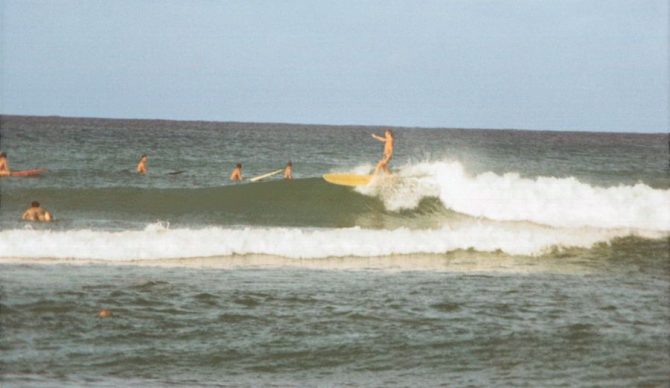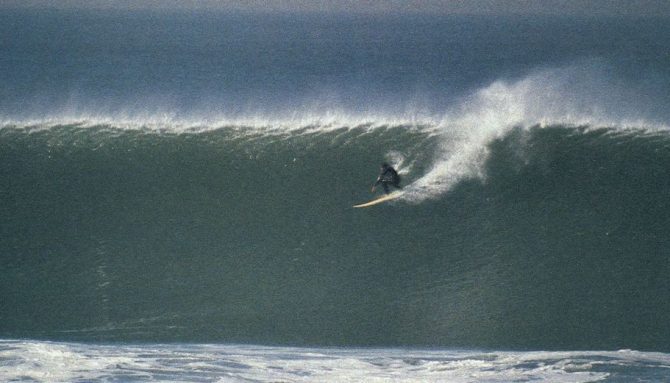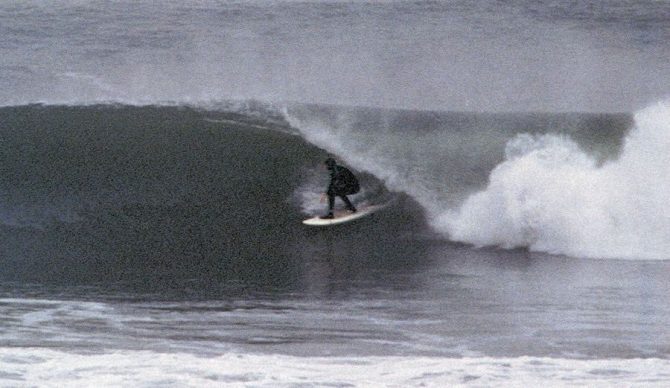
Finnegan, Waikiki, 1967. Photo: The New Yorker
When one thinks of William Finnegan, they are often immediately drawn to his recent success. Barbarian Days: A Surfing Life winning the Pulitzer Prize for Literature is indeed a fantastic achievement for an autobiographical account that surrounds itself with surfing terminology. It is also a fantastic achievement for any writer who has encapsulated through text, the passion of the act we all so dearly adore. In these words, however, I would like to talk about the profound effect that another piece of Finnegan’s writing had upon me, and why it has made me a better surfer today.

“Playing Doc’s Games” is an entrée to Finnegan’s life of traveling the world, chasing waves.
“Playing Doc’s Games” is by far one of the most influential pieces of storytelling that I have ever laid my eyes upon. Published in The New Yorker in the American summer of 1992, it was the first modern piece of writing made widely available that fully explained the intricate motives, desires, and hardened difficulties of living with our addiction. Matt Warshaw explained in an earlier piece on The Inertia, “It was a powerful beginning to the new era of surfing literature.” So back when shortboards were still matchsticks, spuds were still wrapped in foil and cooked on barbecues, and I was the mere age of 1, Finnegan began his journey through descriptive, popular, narrative surfing storytelling. This journey has somewhat culminated in his recent release, however “Playing Doc’s Games” sets the tone to the manner with which Barbarian Days was received and enjoyed by the broader surfing community, among others.
I will not enter into describing the narrative itself, as you will want to find a comfortable seating arrangement, perhaps cuddled up in bed next to a stick of wax and your favorite board. Perhaps inside a board bag itself, slowly asphyxiating yourself with your leg-rope, whatever makes you float. I myself read the 39,000 words whilst perched in a hut by the sea in Kiribati, watching an onshore breeze tear apart the break outside my home. Lucky as this may have been, the feelings that flowed whilst reading, and after completion, changed the way that I surf forever.
We are all, I believe, somewhat shaped by those that surf around and with us. The new age of constant Internet flurries of surf video and photography also have an impact that can’t be measured, but can most definitely be noticed. Who hasn’t imagined themselves flying through the air like a Brazilian, or making a vertical turn at Bells like a Victorian shredder? These feats may be shunned for being too celebrated, and most feel that their style is more than satisfactory to gather enough stoke to sleep properly, but to gather these feelings from words upon a page is a different feeling altogether.

Mark ‘Doc’ Renneker at Sloat, Ocean Beach. Photo: Tim Finley/Beach Photos
Finnegan makes you want to charge Ocean Beach with a comfortable sense of fear on a 15ft day. He enables the reader to take heed of the social hierarchy that exists in close-knit surfing communities. “Playing Doc’s Games” also allows you to view the downsides to overcrowded beach breaks, and the pain of working a surfing-life balance into everyday existence. The writing allows the outsider to appreciate the careful positioning when ridges begin to interrupt the horizon. And although I can say myself that I do not have any 9’ 8” Ross Clarke guns in my back shed, he makes the thrill of big wave surfing palpable and from this a sense of self-belief abounds.
How did “Playing Doc’s Games” change the way that I approach my surfing endeavors? It has made me duck dive deeper, charge down that monster set that catches you unaware, have a belief that although there are far more elegant stokers besides me, whatever my limits are, as long as I push them that little bit further, where possible, the gains will come. Not gains with regards to the fact my backhand will improve, but I will be happier with my experience in the water.
The bubbles of dread will still occur on the days that are too big, when you know you can’t handle it. There will still be the blokes in the car park with brand new boards every winter whilst you continue to plug that reef gash with pollyfill. And there will always be that mate of yours that lets you know when you missed the perfect day. With “Playing Doc’s Games”, Finnegan has woven his magical wordsmith wand through the perils and delicacies of the surfing world; a feat that I believe had not been achieved before that fateful August day in 1992.
Of course there are critics, the Pump House Gang have labelled Finnegan a Kook, immortalized (for now) in pink graffiti overlooking a La Jolla beach in Southern California. Perhaps this was their reaction to Tom Wolfe’s novel still broiling? Opinions abound and we are all glad for them, so find a spare leggy, zip yourselves in, and don’t pull too hard.

William Finnegan at Noreiga. Photo: Greg Raymond / Beach Photos
Check out part one of Playing Doc’s Games here and part two here.

